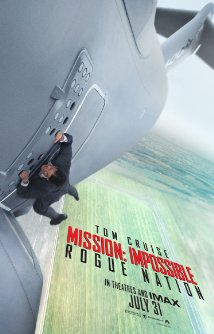It's hard to think of something to say about a good movie. there have been weeks when this blog has been silent not so much out of respect for great work, but because the only good stories are those of disaster and setback, and Hollywood has for once left me nothing to build on. Pixar are swines that way, endlessly producing movies too good for the likes of me. Inside Out is more of the same.
While it’s unlikely that Pixar are ever going to beat the wordless gut punch of Up's opening five minutes, Inside Out is arguably a better movie overall. Like all the best work the studio has produced, it's really a meditation on loss and how to deal with it, carefully wrapped up in a goofy animation full of jokes. Pretty much the only quibble you could possibly have with the movie is that five emotions isn't anything like enough for the inside of the average grown-up head.
I read somewhere that at one point the script had 26 emotions, and then the law of narrative simplicity cut in, and started slashing right and left until they had something which anaudience could keep track of. They were probably right. No matter that the logic of the initial set up should have given us a positive crowdscene in Reilly's parents' heads, the movie would have been impossible to follow if they'd gone with that. So Reilly starts off with just one emotion, Joy, and develops four more later, and her parents, after twenty more years of life have still only got five; yeah, sure it'snot logical, but we've got a story to tell here. And the contrastsbetween the different versions of Joy, Sadness and Anger in all three heads would have been lost if there'd been a whole crowd of other adult emotions clamouring for space.
The big story works. And as always with Pixar, the incidental details are golden. Sure, the five emotions are in charge up in the controlroom, but all the grunts down in the basement moving things around have just as much life and character as the major players. There isn’t a wasted moment; every second on screen earns its place with a joke or a moment of insight - or more likely, a joke which doubles as a moment of insight.
And in an inspired bit of "always leave them asking for more" the movie ends with a pan around the inside of the heads of a load of the side characters, all with their own takes on the five emotions we've got to know (my favourite being a bus driver, all five of whose emotions are just different coloured versions of Anger). I’ve no idea what a sequel could even be about, but I wanted one right there.
